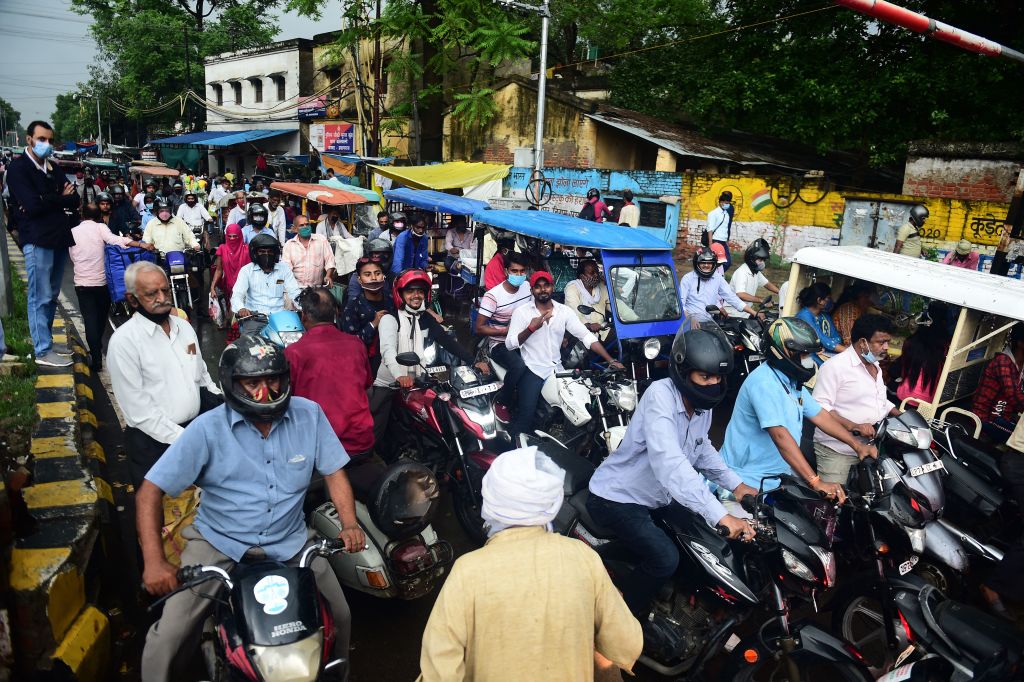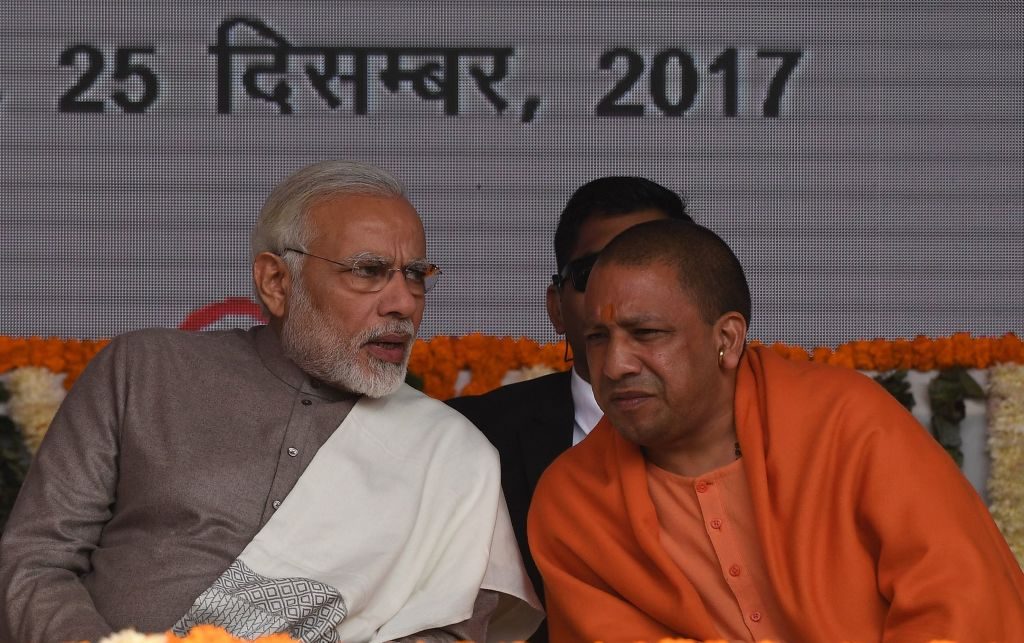- Wednesday, May 01, 2024

By: Shubham Ghosh
YOGI Adityanath, the chief minister of northern Indian state of Uttar Pradesh on Sunday (11) unveiled the state’s new population policy with an aim to incentivise people to help in population control. The move coincided with the World Population Day, which is celebrated on July 11 every year.
“Increasing population can be a hurdle in the way of development. Every community has been taken care of in Population Policy 2021-2030,” Adityanath said.
ALSO READ: Experts warn against Uttar Pradesh population control draft
Uttar Pradesh, India’s most populous state, has proposed a legislation to discourage its resident couples from having more than two children. Under the proposals mentioned under the draft titled ‘The Uttar Pradesh Population (Control, Stabilization and Welfare) Bill 2021’, anybody who would violate the two-child policy will be disallowed to contest in local body elections, apply for or get promotion in government jobs and receive any kind of government subsidy.
As per the UP State Law Commission website, “The State Law Commission, UP is working on control, stabilisation and welfare of the population of the state and has prepared a draft bill.” Public suggestions have also been invited to improve the draft bill and July 19 is the last date for it.
Speaking on the benefits for public servants who abide by the two-child policy, the draft bill says, “Public servants who adopt the two-child norm will get two additional increments during the entire service, maternity or as the case may be, paternity leave of 12 months, with full salary and allowances and three per cent increase in the employer’s contribution fund under national pension scheme.” A state population fund will also be set up to facilitate the act’s implementation.

The draft bill has also spoken over the government’s responsibilities, saying maternity centres will be set up at every primary health centre. Those centres and non-governmental organisations will be asked to distribute contraceptive pills and condoms besides spreading awareness about family planning methods through community health workers. They will also look into mandatory registration of pregnancies, deliveries, births and deaths in Uttar Pradesh.
UP would have been world’s 5th most populous country
Uttar Pradesh has a population of 240 million and if it were a separate country, it would have been the world’s fifth-most populous state. It’s population density is also more than double the national average.
However, per capita income in Uttar Pradesh is less than half of that of the national average. According to the bill, because of the “limited ecological and economic resources of the state, it is necessary and urgent that the provision of the basic necessities of human life be accessible to all citizens.”
India, which is the second most populous country in the world next to China with 1.38 billion people, is expected to overtake its northern neighbour to become the most populous by 2027 but unlike the latter, it doesn’t have a national two-child policy.
Uttar Pradesh is the second state after Assam, which is also ruled by prime minister Narendra Modi’s Bharatiya Janata Party, to have announced plans to control the population. Last month, the northeastern state also unveiled plans that would deprive families of government benefits if they have more than two children.
Vishwa Hindu Parishad raises concerns
However, the UP population control bill seems to have left disagreements in the country’s Hindu majoritarian camp. On Saturday (10), Alok Kumar, the working president of the right-wing Hindu nationalist Vishwa Hindu Parishad (VHP) said the part of the bill which specifies more benefits for couples having only one child will lead to an “imbalance in the ratio of Hindu and Muslim populations”.
Speaking to ANI news agency, Kumar said, “The first part of this bill mentions that a couple having two children will get the benefit of government facilities. But, in the second part, it has been said that the couple having only one child will get some more benefits. We object to this part because it will create an imbalance in the ratio of Hindu and Muslim populations. The government should think again about this because it leads to negative growth in population.”
![]()